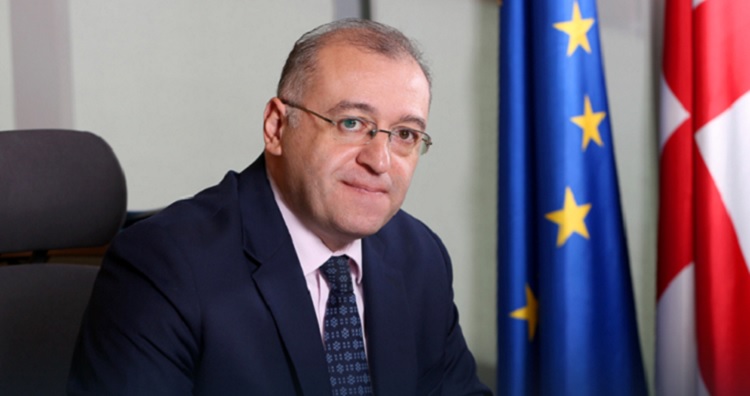National Bank of Georgia keeps refinancing rate at 9%

As of today, 1 USD costs 3.0807 GEL while 1 EUR costs 3.3974 GEL. Photo: National Bank of Georgia.
The National Bank of Georgia (NBG) is keeping the refinancing rate at 9 per cent.
The decision was made at a meeting of the Monetary Policy Committee today.
Annual inflation in February amounted to 6.4 per cent.
According to the NBG’s forecast, inflation should have started to decline in early March of 2020 and should be close to target inflation (three per cent) by the end of 2020.
To decrease the pressure of the exchange rate on inflation, the National Bank of Georgia increased the refinancing rate by 0.5 percentage points to 7.5 per cent on September 25, and again by one percentage point to 8.5 per cent on October 23.
The National Bank of Georgia increased the refinancing rate by 0.5 per cent to 9 per cent on December 11, 2019.
As of today, 1 USD costs 3.0807 GEL while 1 EUR costs 3.3974 GEL.
As a result of the new coronavirus pandemic and the decline in international oil prices, globally the economic uncertainty has increased significantly,” said the NBG.
The National Bank of Georgia says that the economic growth rates of Georgia and its trading partners are expected to decline, and that two factors have particular sway over inflation:
The depreciation of the Georgian lari increases inflationary expectations; also, decreased external demand decreases the aggregate demand which decreases inflation,” says the NBG.
The National Bank of Georgia says that in case the effect of the lari depreciation will be stronger than the effect of the decreased aggregate demand, the NBG will increase the refinancing rate to decrease inflation. If the effect of decreased demand is stronger, the NBG will be ready to start decreasing the refinancing rate.
As of now, the NBG is keeping the refinancing rate unchanged amid high uncertainty.
By steering interest rates, the NBG influences the level of inflation. Specifically, the change in short-term rates is transmitted to long-term rates, which, ultimately, affects the interest rates on loans.
When projected inflation is above the target inflation rate, the NBG raises the refinancing rate to combat a future surge in the general price level.
The next meeting of the NBG’s Monetary Policy Committee is scheduled for April 29, 2020.
 Tweet
Tweet  Share
Share